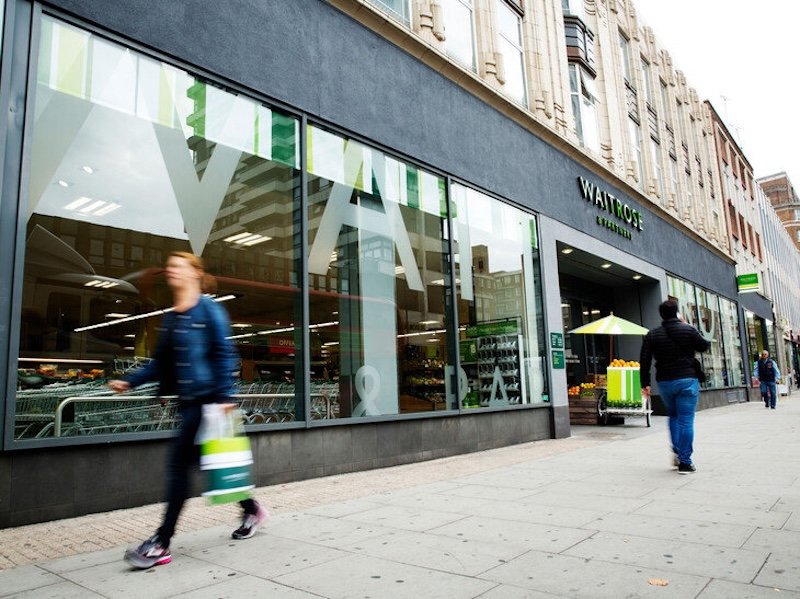The growing influence of online trading platforms on retail investment trends
Your neighbour just turned $500 into $5,000 - while sipping coffee in their pajamas. No, they didn’t win the lottery. They clicked buy on a trading app.
Retail investing isn’t just changing - it’s erupting. Fueled by sleek interfaces, real-time data, and a rush of DIY ambition, online trading platforms are turning everyday folks into market players at an unprecedented scale.
Whether it’s zero-commission trades, gamified dashboards, or the thrill of beating Wall Street at its own game, these platforms are rewriting who gets to invest and how fast trends can shift.
The line between professional and retail investor? Blurring fast. Read on to find out more.
A New Type of Investor Is Emerging
Online trading platforms have done more than digitise stock buying. They've actually created a cultural shift. Investors today aren’t content to passively watch their portfolios crawl forward. They’re curious and constantly plugged in. The average retail trader now behaves less like a “weekend investor” and more like a data-driven decision-maker, even if they’re trading part-time.
This shift didn’t happen overnight. Several forces converged to bring online platforms to the forefront:
● The mainstreaming of fintech apps, removing the mystique from market participation
● Commission-free trades that wiped out a major barrier to entry
A growing appetite for financial independence, especially among younger generations
● Social media communities turning isolated investors into massive crowd-sourced movements
The impact is as much psychological as it is financial. Platforms are designed to be sleek, social, and instant. This fosters not only engagement but experimentation. People are trading options, forex, crypto, and stocks - sometimes all in the same afternoon.
The Platforms Powering the Shift
This new wave of retail activity is being powered by platforms that understand their users on a behavioral level. While some offer gamified experiences that mimic social media, others are taking a more sophisticated approach - blending user education, professional-grade tools, and tailored dashboards.
Platforms like AxiCorp are a prime example. Rather than simply providing access to markets, they give users insights they can act on. This includes features that don't feel like clunky add-ons but instead come woven into the daily experience.
What sets platforms like these apart isn’t just their feature set. It’s their ability to adapt. Some companies have leaned into a hybrid of smart automation and human support, where traders get the autonomy they want and the safety support precautions they didn’t know they needed. They're helpful for both first-time investors and seasoned traders recalibrating their strategy.
Retail Traders as Market Movers
The meme stock frenzy of 2021 wasn’t an isolated event: it was a wake-up call. Millions of retail investors rallied behind companies like GameStop and AMC, using collective momentum to send shockwaves through the marketBut beyond the headlines, what stood out was the realisation that retail traders could move markets in ways that analysts hadn’t anticipated.
Now, those same traders are exploring macroeconomic events, digging into earnings calls, and experimenting with complex instruments like CFDs and forex pairs. This appetite for depth has created demand for platforms that offer more than access. They need interpretation and real-time analysis.
While critics argue that retail trading is still too emotional or erratic to have staying power, the data suggests otherwise. Retail participation in equity trading remains strong even after the post-pandemic cooldown. More importantly, engagement is diversifying across asset classes:
● Futures
● Commodities
● Sustainable ETFs
● Crypto options
● Tokenized assets
● Fixed income products
Are seeing upticks in interest.
Financial Literacy Is No Longer Optional
One of the quiet revolutions happening inside online trading platforms is the explosion of financial education. It’s no longer acceptable to throw users into the deep end and hope they figure it out. Smart platforms are investing in everything from bite-sized video explainers to full-scale trading academies.
This new wave of financial literacy comes at the perfect time.
● Inflation volatility
● Geopolitical uncertainty
● Earnings season surprises
● Shifting central bank policies
● Regulatory shake ups in emerging sectors
Have made markets harder to navigate. For platforms that offer context in addition to access, this is a strategic advantage.
Traders don’t just want to know how to invest: they want to understand why market movements happen in the first place.
Several platforms now curate live webinars, analysis hubs, and AI-based insight tools that guide decision-making without dictating it. This approach respects the user’s autonomy while raising the overall calibre of the average retail investor.
What's Next: Customisation and Control
Looking ahead, the retail investment space will keep getting more personalised. Expect trading platforms to double down on adaptive features - like custom news feeds, AI portfolio rebalancing suggestions, and market alerts based on individual strategy profiles.
We’re also seeing the rise of social trading, where investors can follow or mirror the trades of others, creating network effects within investment ecosystems. But the most compelling frontier may lie in the integration of behavioral analytics.
These are platforms that are learning from users’ habits and tailoring experiences accordingly, not just for profit, but for smarter decision-making.
Investors now expect control and tailored customisation - not generic dashboards or one-size-fits-all experiences. The platforms that recognise this are the ones likely to define the future of retail investing.
And they’re not just trading tools anymore. They’re becoming full fledged financial ecosystems.































Continue reading…